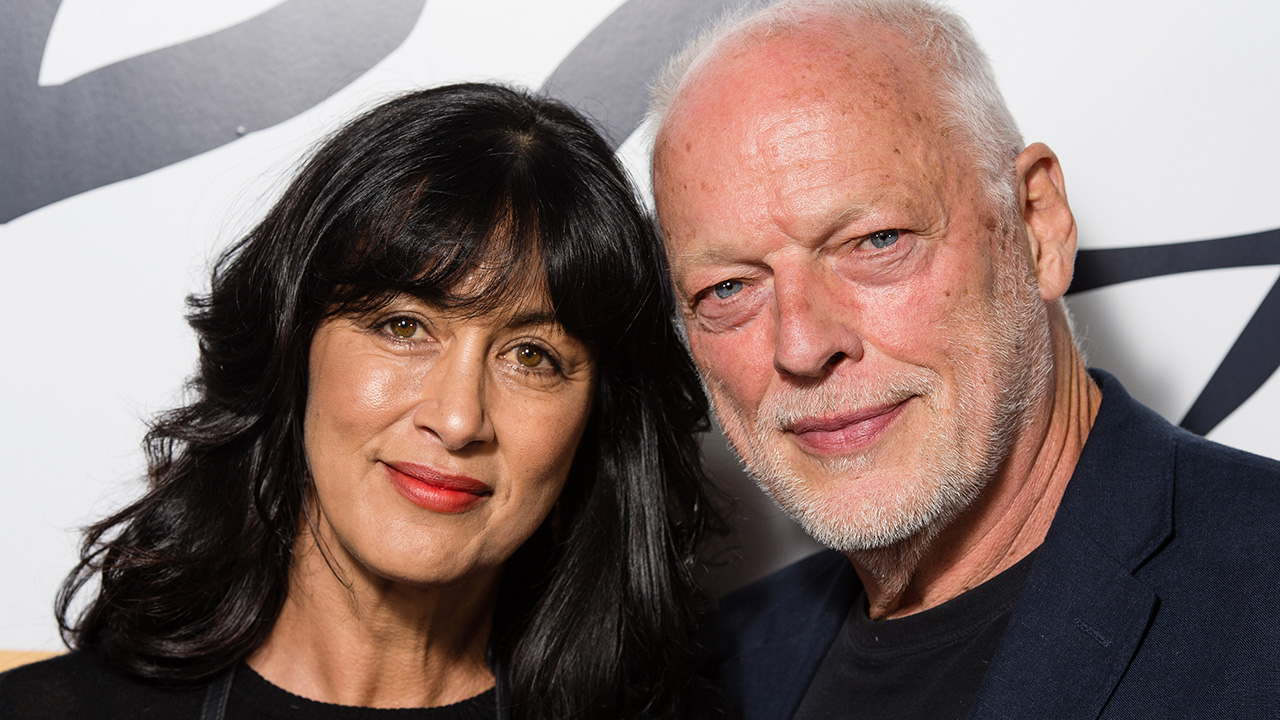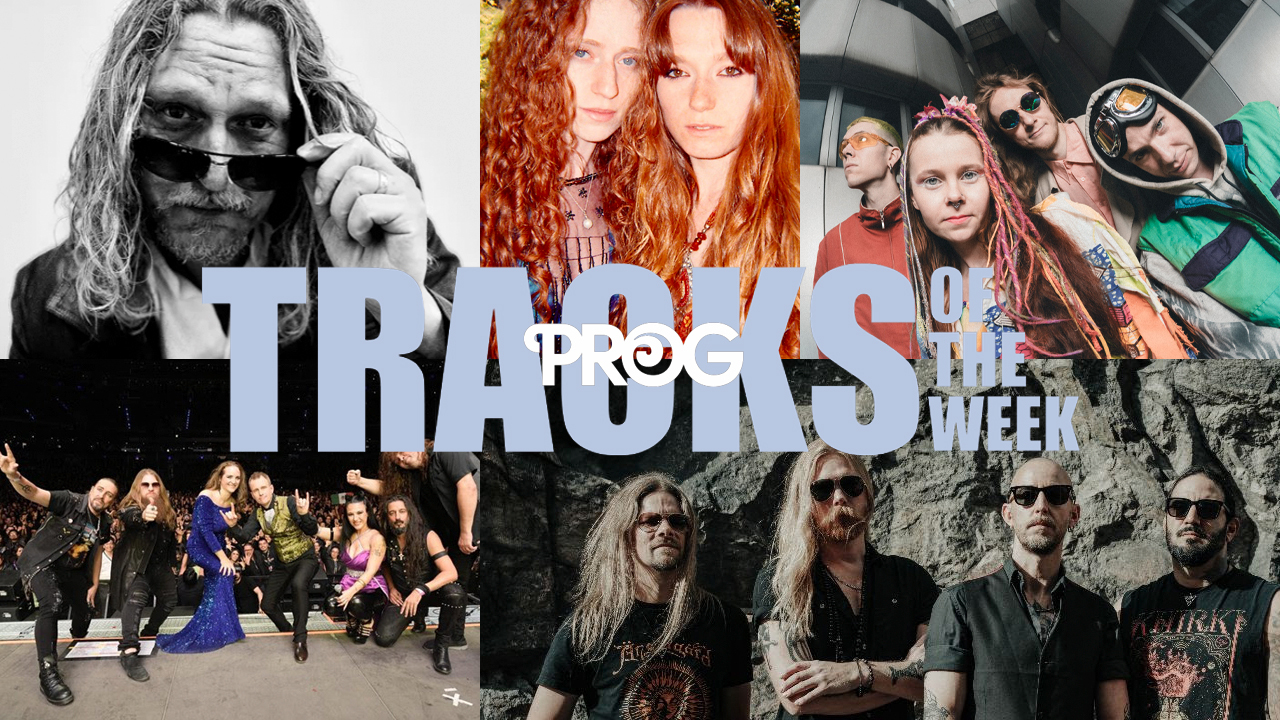“I said, ‘I’m not writing another song until you’ve written one.’ I find it hard to get him to do it. He’d rather wash the car”: Polly Samson on cajoling David Gilmour into work, Pink Floyd’s awkward silences, and the words she refused to write
The guitarist’s wife and long-term creative partner helped him put a full-stop on The Endless River, before the couple brought his 2015 album Rattle That Lock to fruition

Novelist Polly Samson started collaborating with future husband David Gilmour on Pink Floyd’s 1994 album The Division Bell. The couple have continued to work together since, with Samson writing lyrics for final Floyd album The Endless River – devised as a tribute to Rick Wright – and Gilmour’s solo material, including 2015’s Rattle That Lock. That year she told Prog about the process of writing for the record.
As David’s writing partner, what comes first – the music or the lyrics?
On the whole, it’s the music. There’s been one exception, which was Louder Than Words on the last Pink Floyd album. I didn’t really want to write lyrics for that album. I loved it so much as an instrumental album, and to impose lyrics without Rick being around felt presumptuous or wrong.
What changed?
David wanted something as a full-stop to the whole Pink Floyd thing. So, without a piece of music, I wrote Louder Than Words. It was an easy lyric to write because for years I’d noticed this thing: if you’re in a room with David, Nick and Rick – or as I was at Live 8 with David, Nick, Rick and Roger – nobody speaks. There’s nothing but awkward silences.
They have no small talk with each other, they have no big talk with each other; they just do not speak. If you happen to be the unlucky person in the room, it’s the most awkward feeling you can imagine.
And then they get onstage with their instruments and suddenly they’re so eloquent, and the way they communicate is beautiful. And so I wrote Louder Than Words just to express that feeling.
Sign up below to get the latest from Prog, plus exclusive special offers, direct to your inbox!
How come David finds it so difficult to write lyrics?
The way he communicates is through the guitar, and in conversation he’s quite ponderous. Although I think he’s written some good lyrics – I think the two lyrics he’s written on this album [Faces Of Stone and Dancing Right In Front Of Me] are fantastic. I don’t find it hard to write lyrics, but I find it very hard to get David to write lyrics.
How did you get him to do it?
I’d just written the lyrics to Rattle That Lock, which David was very keen on. But I said, “I’m not writing another one now until you’ve written one.” And it really was a bit like trying to get a child to do their maths homework! I had to shut him in a room with a blank paper, and he would stare at that blank paper. And I’d come in with a cup of tea and say: “How’s it going?” And he’d say, “Oh, not very well.”
Then we’d go for a walk and talk about what he was trying to write about, and it was like squeezing the words out of him. In the end he got there, and I think they’re two very fine lyrics. But it took a lot of work – on my part!
So you trick him into writing?
Oh, yeah! But I think it’s partly a muscle he doesn’t use. David, at a very young age, found music was his thing. And I think the brain develops strengths in those areas.
Doesn’t he want to get better at it?
No! He’ll do anything rather than write words himself. He’d rather go and wash the car than write words himself. He will find anything to get out of it. But he needs to do it, because otherwise where am I going to get my love song? I can’t write my own love song! It’s not fair, is it?!
How much of yourself or your personality is in those lyrics?
Very little. When I started writing with him in 1993, I had to try and work out what was in him, and to treat him like a character I might be writing in a book. I was very conscious of him as the person who would be singing my words. As I’ve gained confidence over the years, and learned more about songwriting, I’ve realised that one can write a third-person song, and it can be observational; it doesn’t have to be what David is feeling in his heart.
Have you run into a situation where he isn’t happy with what you’ve written?
Only once, with an earlier version of The Girl In The Yellow Dress. That jazzy piece of music was around at the time of On An Island [in 2005]. It was very suggestive to me of a story from my own life. When I was 19 I was new in London, I didn’t know anyone, and I used to go to a place called the Tufnell Park Tavern on my own, just to sit and stare at this man playing the saxophone.
It was sort of like a crush, really. And a very unlikely one, because he was an ancient old man. But I loved the way he played the sax. I wrote a song trying to explain that – and David really didn’t want to sing it. I could understand why.
So you changed the lyric?
That piece of music was still around, and I still loved it. Then Phil Manzanera, who’s produced this album, said, “It’s so obviously about a beautiful, sexy woman.” And I thought, “You’re right; but how do I write about a beautiful, sexy woman? I can’t write about myself, can I?” And I’m not going to write about some other beautiful, sexy woman for David to sing!
You must confirm your public display name before commenting
Please logout and then login again, you will then be prompted to enter your display name.
